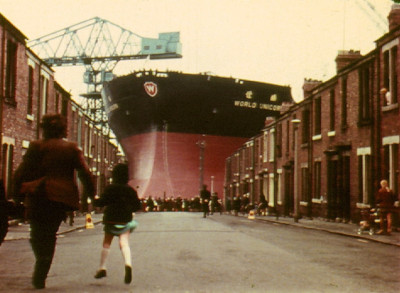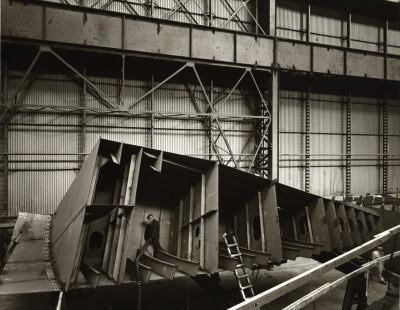
The Mauretania
Various
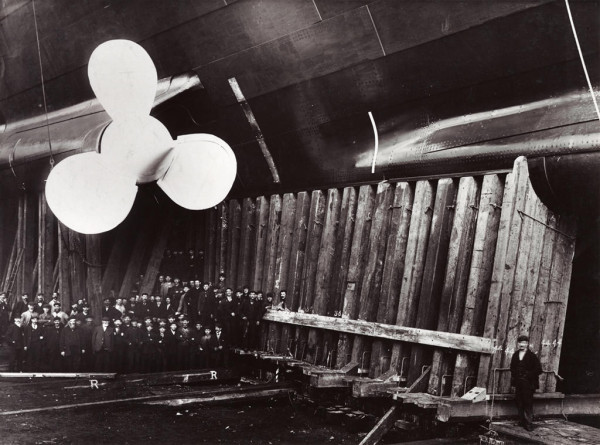
The Mauretania
Various
- Photographic
- Primary Source Programme
- Historical Documentary
- Northern Documentary
- Work & Unemployment
- Industrial
- Historical
- Tyne & Wear
- UK
The building of the RMS Mauretania, launched in 1906 from Swan Hunter shipyard in Wallsend, was recorded by a number of photographers, most of them unknown, including James Cleet of South Shields. These images form a striking record of one of the most significant shipbuilding projects of its time, capturing the immense scale of the construction and the labour that brought it into being. The Mauretania went on to become one of the most famous ocean liners of the early twentieth century, holding the Blue Riband for the fastest transatlantic crossing for over two decades.
The photographs were brought together by Amber in the early 1980s as part of the North Tyneside Survey, a major documentary initiative that also included Sirkka-Liisa Konttinen’s Interiors, Beaches by Konttinen and Markéta Luskačová, Luskačová’s Juvenile Jazz Bands, Urban Landscapes by Izabela Jedrzejczyk, Jungle Portraits, and work by Graham Smith. The exhibition of the Mauretania material was first shown at Swan Hunter itself, returning the photographs to the place they were taken and placing the history of the shipyard in full view of its workforce.
This project not only celebrated the achievement of the Mauretania but also acknowledged the generations of skilled workers whose expertise defined Tyneside’s shipbuilding heritage. The photographs offer a rare and detailed visual account of early twentieth-century industrial process, framed not as spectacle but as the product of human effort. As with much of Amber’s work, the exhibition gave renewed attention to local history, presenting it not as nostalgia but as living memory embedded in the landscape and in the people who shaped it.
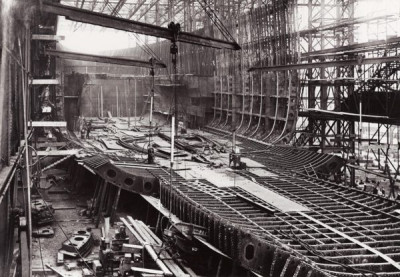
The Mauretania: Midship and Forward Parts Showing Cellular Double Bottom, 4th April 1905
- Ref: 039-001-LBW
- Date: 1905
- Artist: Various
- Copyright: Public Domain
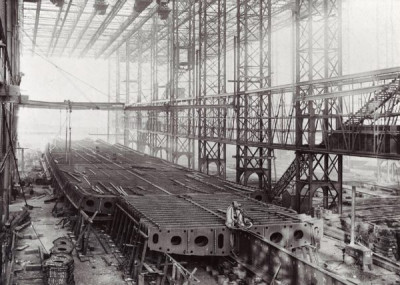
The Mauretania: Early Stages of Construction, 1905
- Ref: 039-003-LBW
- Date: 1905
- Artist: Various
- Copyright: Public Domain
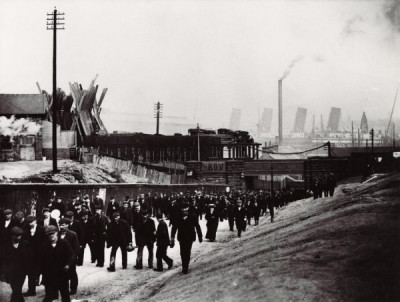
The Mauretania: Leaving Work on Swans Bank, c. 1905
- Ref: 039-004-LBW
- Date: c. 1905
- Artist: Various
- Copyright: Public Domain
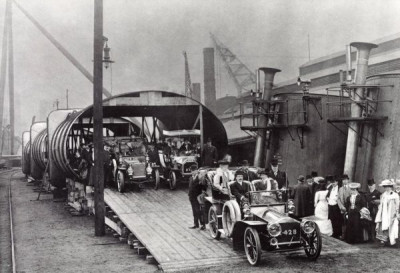
The Mauretania: Officials of the Cunard Company Pass Through the Mauretania's Funnel Castings on an Inspection Visit, 20th September 1906
- Ref: 039-005-LBW
- Date: 1906
- Artist: Various
- Copyright: Public Domain
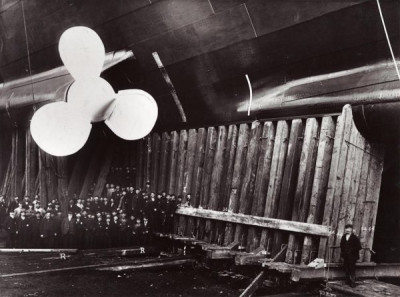
The Mauretania: Workers are Recruited to Give Scale to One of the Four Propellers, 20th September 1906
- Ref: 039-002-LBW
- Date: 1906
- Artist: Various
- Copyright: Public Domain
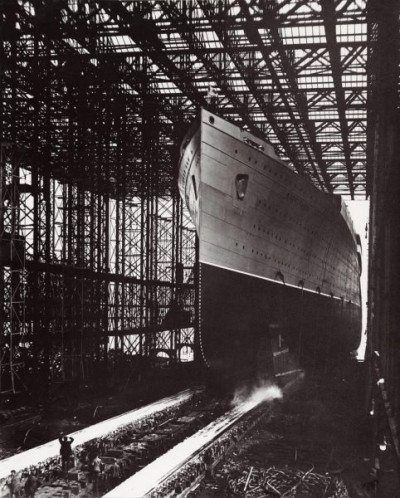
The Mauretania: Bow During Launching, 20th September 1906
- Ref: 039-008-PBW
- Date: 1906
- Artist: Various
- Copyright: Public Domain
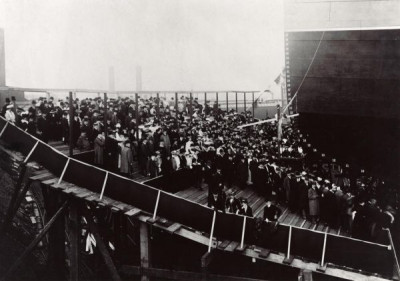
The Mauretania: Launching Party, 20th September 1906
- Ref: 039-007-LBW
- Date: 1906
- Artist: Various
- Copyright: Public Domain
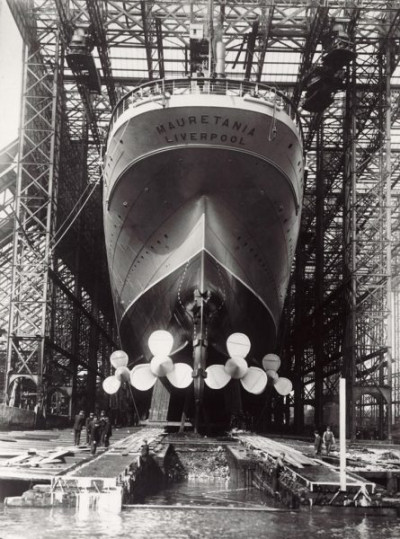
The Mauretania: Stern Before Launch, September 1906
- Ref: 039-006-PBW
- Date: 1906
- Artist: Various
- Copyright: Public Domain
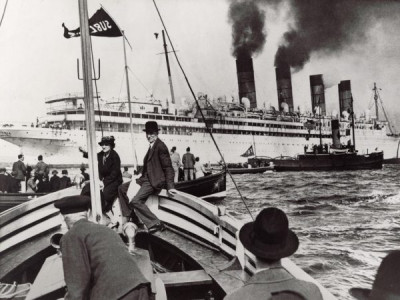
The Mauretania: Seen off South Shields with the Mayor and Lady Mayoress, Summer 1935
- Ref: 039-016-LBW
- Date: 1935
- Artist: Various
- Copyright: Public Domain
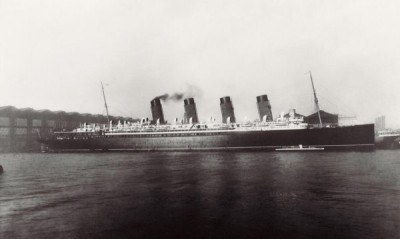
The Mauretania: The Mauretania Alongsie The Turbinia Before Leaving for Liverpool, 1907
- Ref: 039-009-LBW
- Date: 1907
- Artist: Various
- Copyright: Public Domain
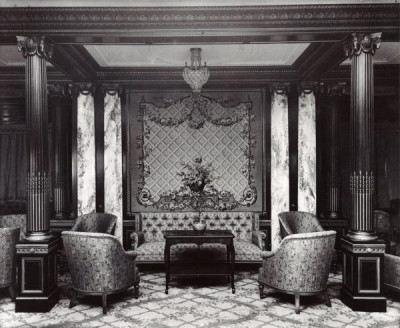
The Mauretania: Aubusson Tapestry in One of the First Class Lounges, c. 1907
- Ref: 039-014-LBW
- Date: c. 1907
- Artist: Various
- Copyright: Public Domain
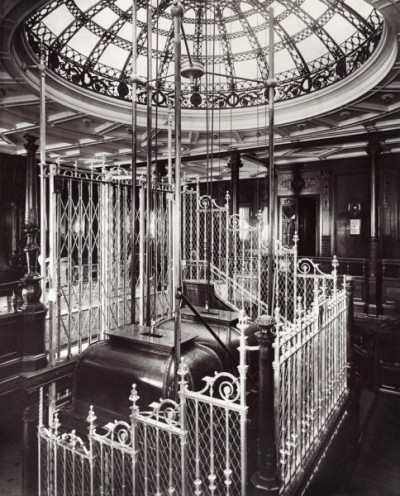
The Mauretania: One of the Four Main Otis Elevators, c. 1907
- Ref: 039-011-PBW
- Date: c. 1907
- Artist: Various
- Copyright: Public Domain
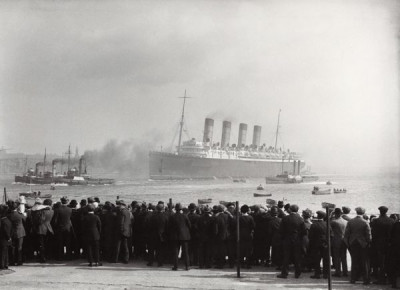
The Mauretania: The Mauretania Returns to the Tyne for Conversion from Coal to Oil, 1921
- Ref: 039-015-LBW
- Date: 1921
- Artist: Various
- Copyright: Public Domain
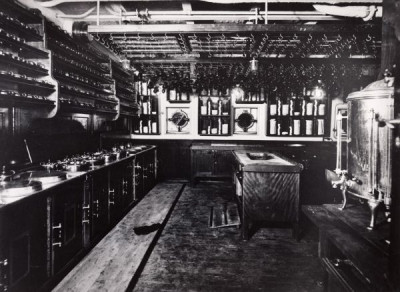
The Mauretania: Interior of First Class kitchens showing electric stoves, c. 1907
- Ref: 039-010-LBW
- Date: c. 1907
- Artist: Various
- Copyright: Public Domain
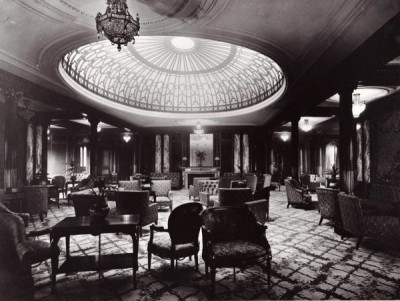
The Mauretania: First Class lounge or music room, c. 1907
- Ref: 039-013-LBW
- Date: c. 1907
- Artist: Various
- Copyright: Public Domain

The Mauretania: First Class Promenade and Boat Deck Looking Aft, c. 1905/06
- Ref: 039-012-PBW
- Date: c. 1905/06
- Artist: Various
- Copyright: Public Domain
Related Works

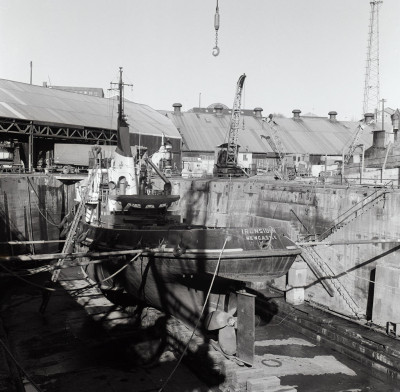
Smith's Dock, North Shields
Peter Fryer
Photographic
